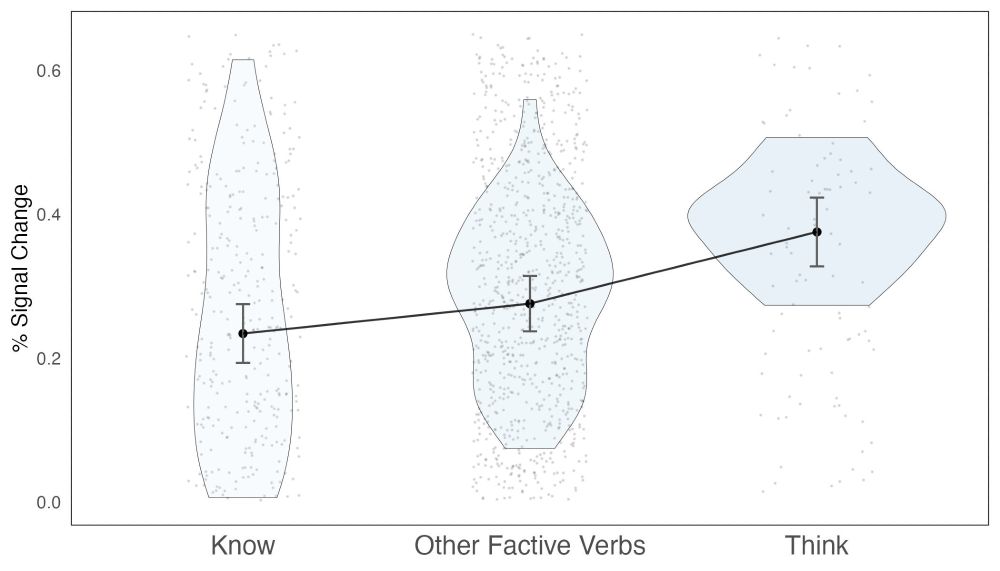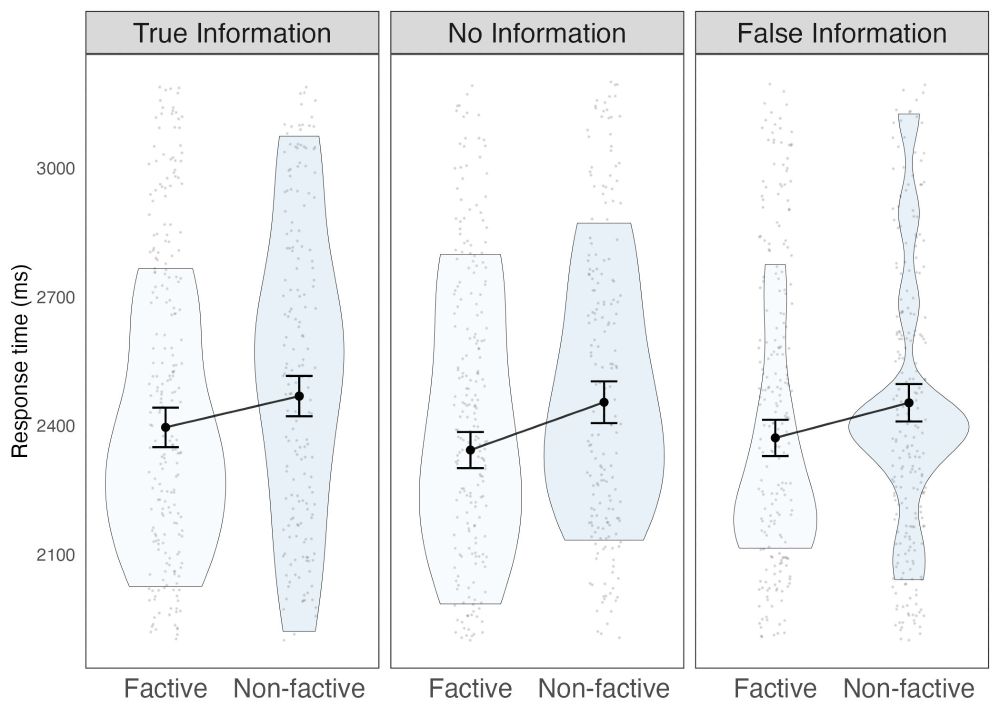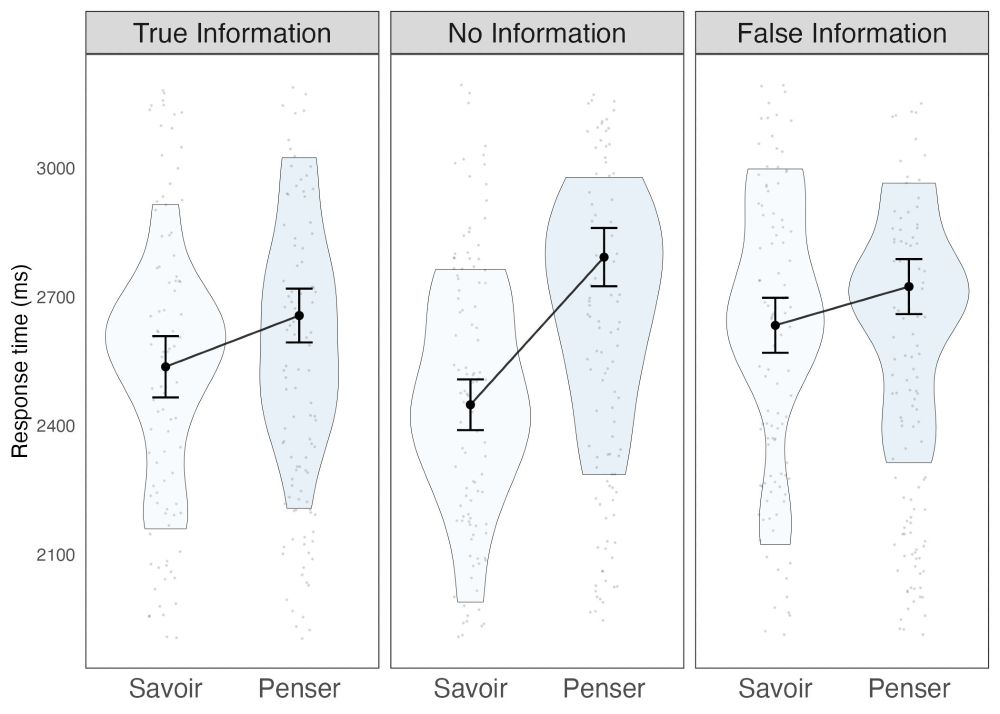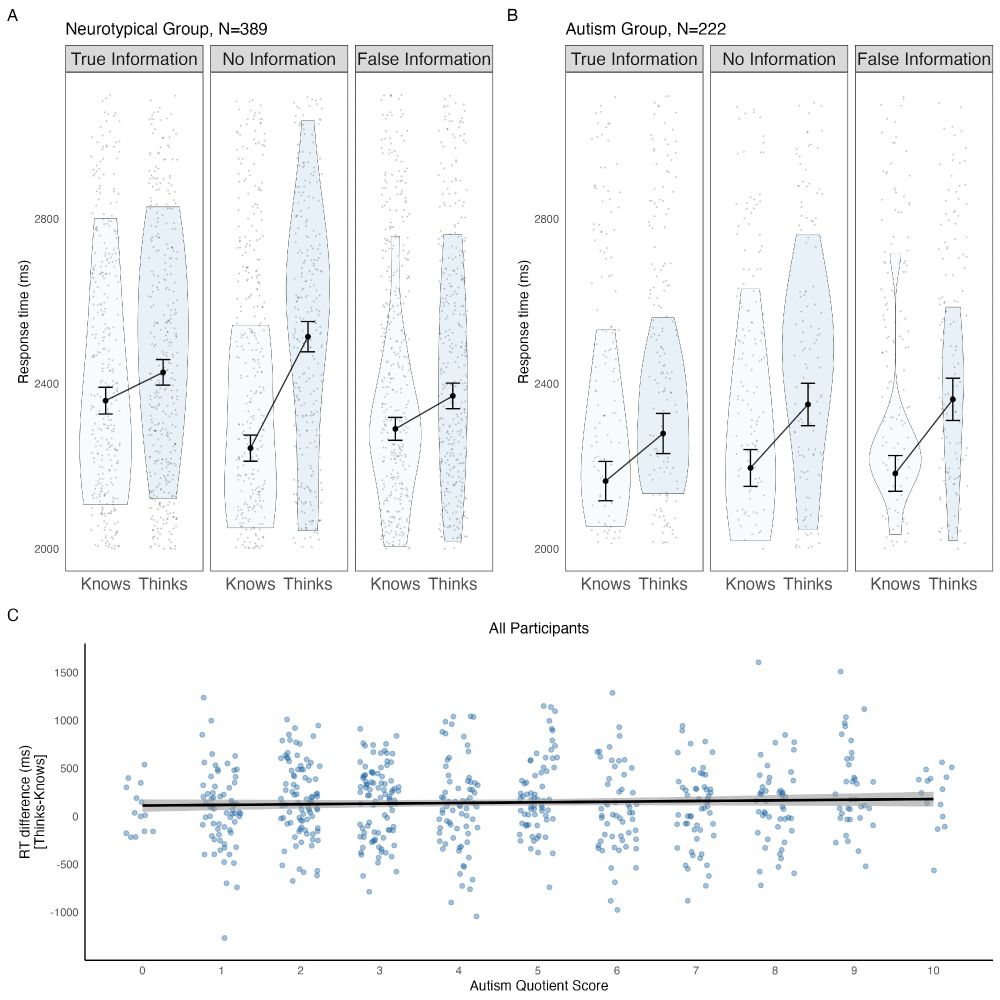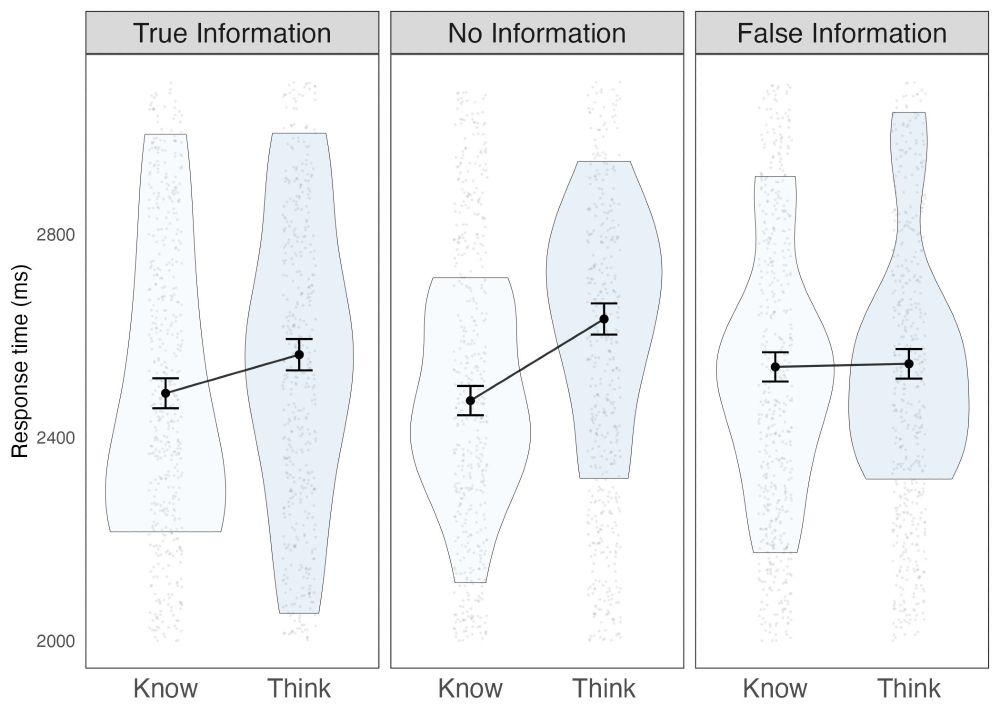Cognitive scientist / philosopher working on modality and high level cognition.
Cognitive science at Dartmouth
https://phillab.host.dartmouth.edu/
Photo credit: Justin Khoo
Reposted by Jonathan Phillips
doi.org/10.1016/j.cognition.2025.106238
👇
Reposted by Jonathan Phillips

onlinelibrary.wiley.com/doi/10.1111/...
When children claim an unexpected event is impossible they also claim it's never happened, even for immoral events, suggesting their judgments reflect beliefs about what could happen & not merely what should.
Reposted by Jonathan Phillips
@openmindjournal.bsky.social
The journal is diamond open access (free to read, free to publish) thanks to the support of MIT Press, Harvard Library, & MIT Library.
Reposted by Yarrow Dunham, Jonathan Phillips
Come for the fun experiments on human learning, memory, & skilled behavior, stay for the best 🍕 in the US.
Please reach out if you have any questions!
Reposted by Jonathan Phillips
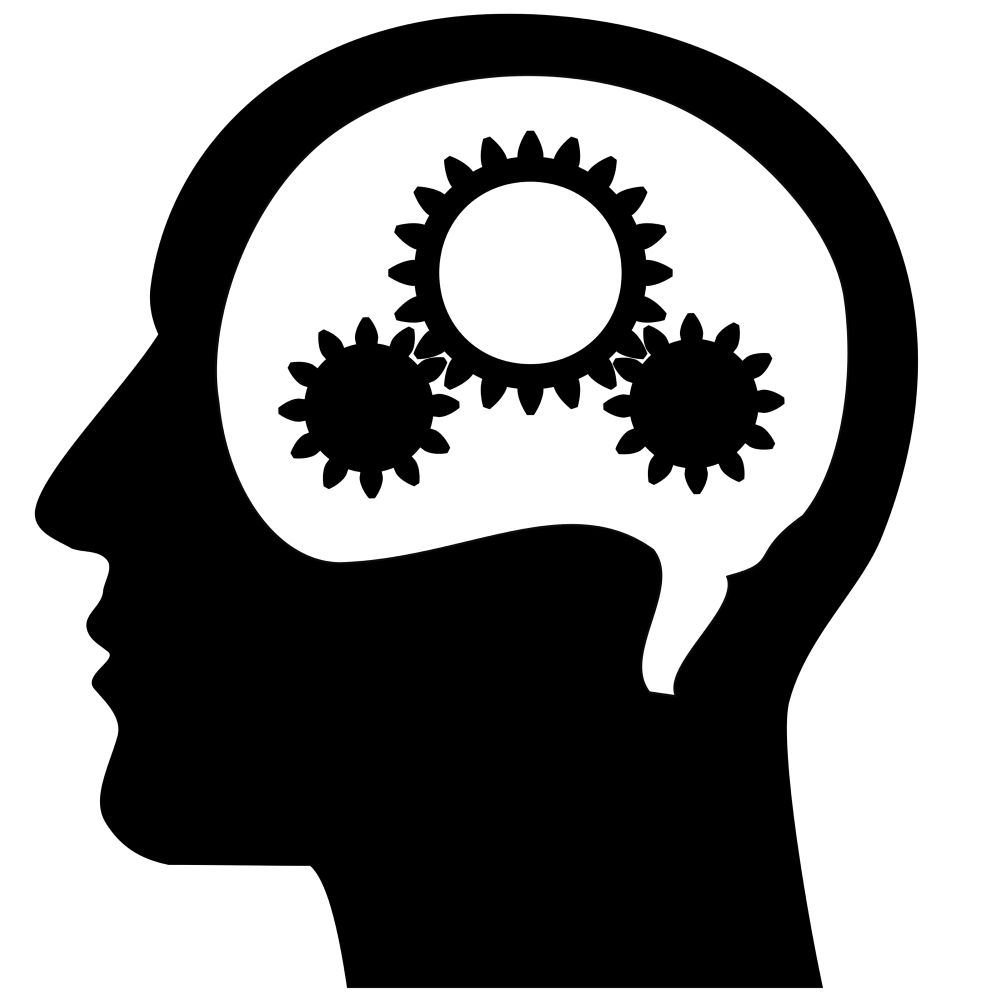
🤔🤨🧐
We’ll be discussing problem selection through various lenses represented by a great lineup of speakers!
Reposted by Gordon Pennycook, Jonathan Phillips
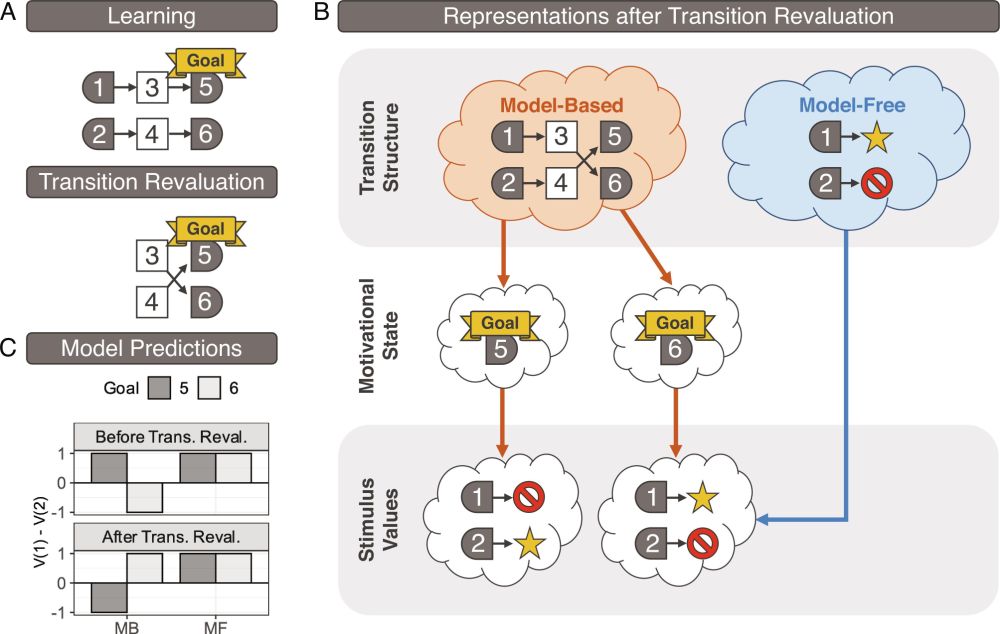
Reposted by Jonathan Phillips
3yr funded post-doc in Theory of Mind inspired by the knowledge first epistemology of Williamson, and the work of @jsphillips.bsky.social. Looking at knowledge and ignorance processing in adults with me and Richard O'Connor at the Uni of Hull. Please re-post.
www.jobs.ac.uk/job/DNE794/p...
Reposted by Jonathan Phillips
Reposted by Jonathan Phillips
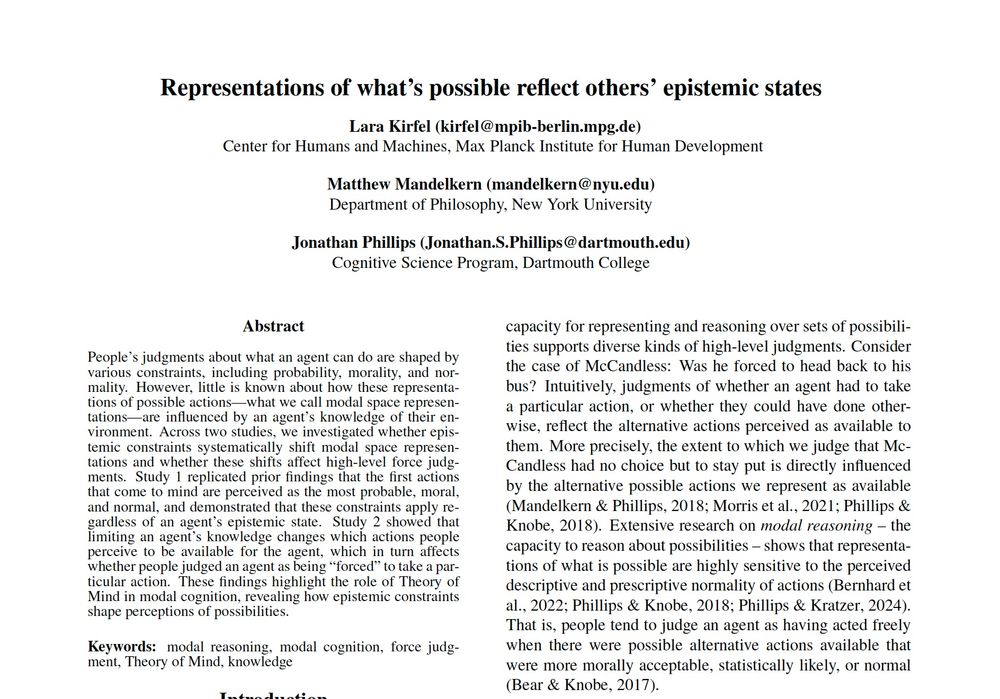
In our #CogSci2025 paper, we show that judgments of what’s possible—and whether someone had to act—depend on what agents know.
📰 osf.io/preprints/ps...
w/ Matt Mandelkern & @jsphillips.bsky.social
Reposted by Jonathan Phillips
Reposted by Jonathan Phillips
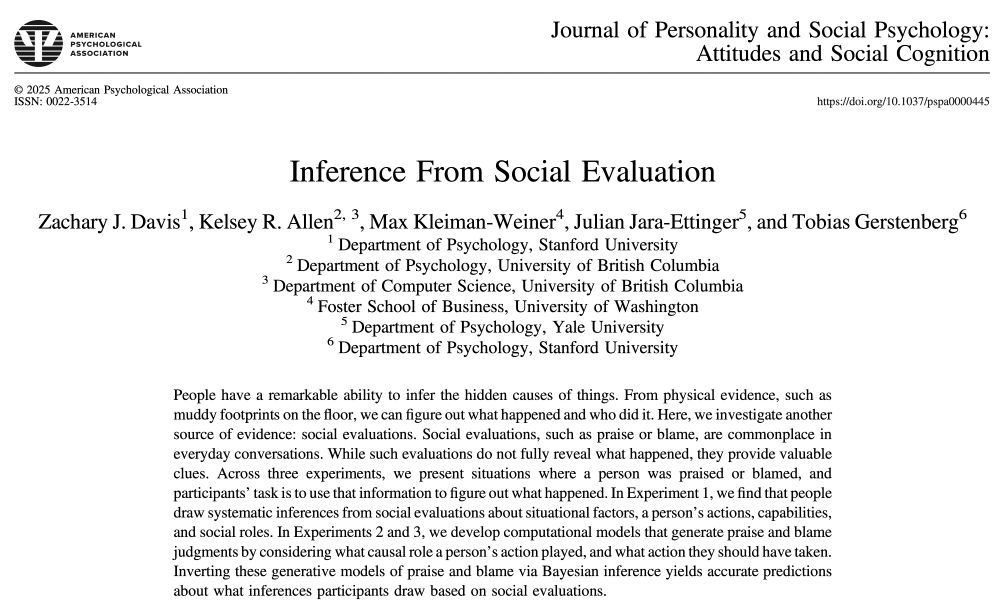
"Inference from social evaluation" with Zach Davis, Kelsey Allen, @maxkw.bsky.social, and @julianje.bsky.social
📃 (paper): psycnet.apa.org/record/2026-...
📜 (preprint): osf.io/preprints/ps...
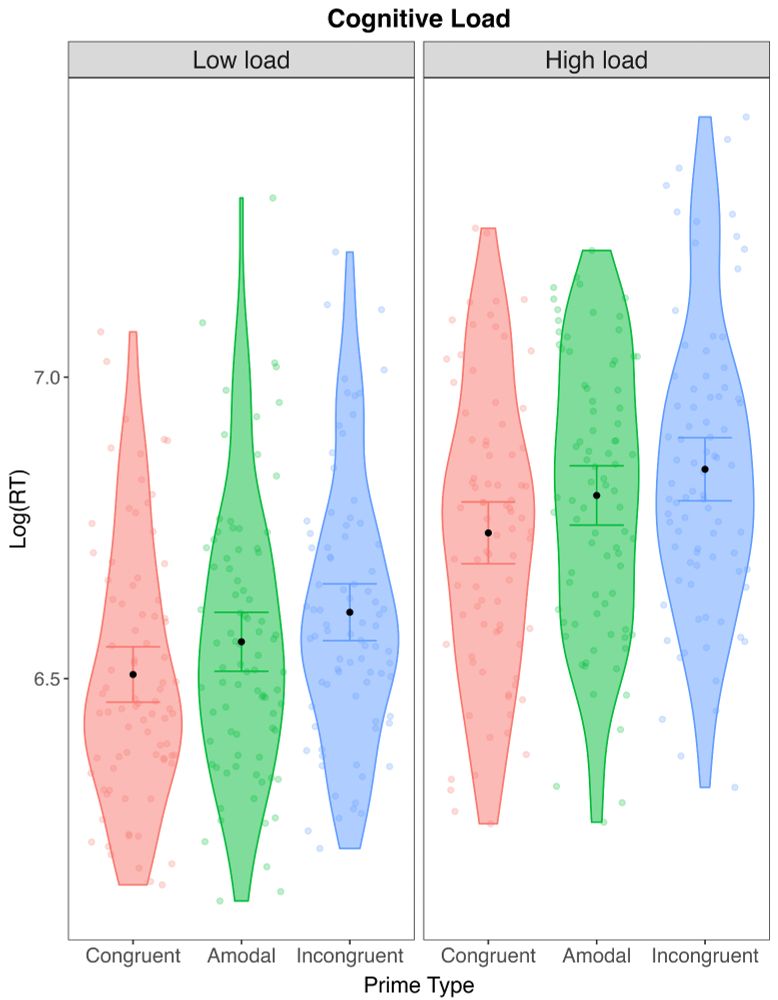
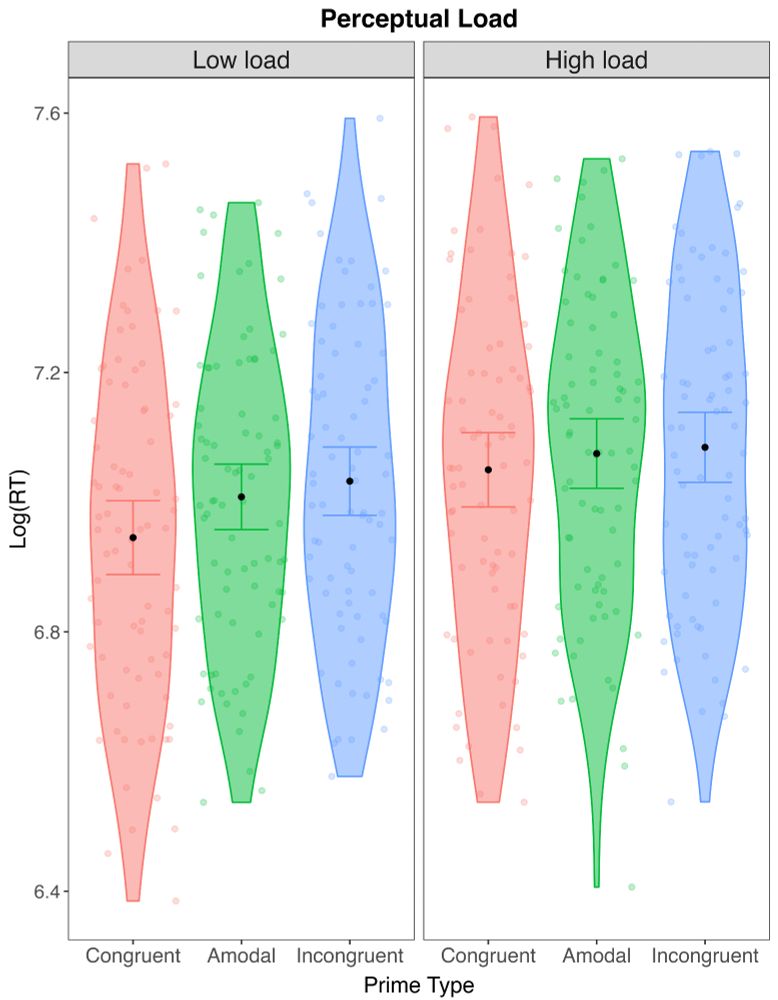
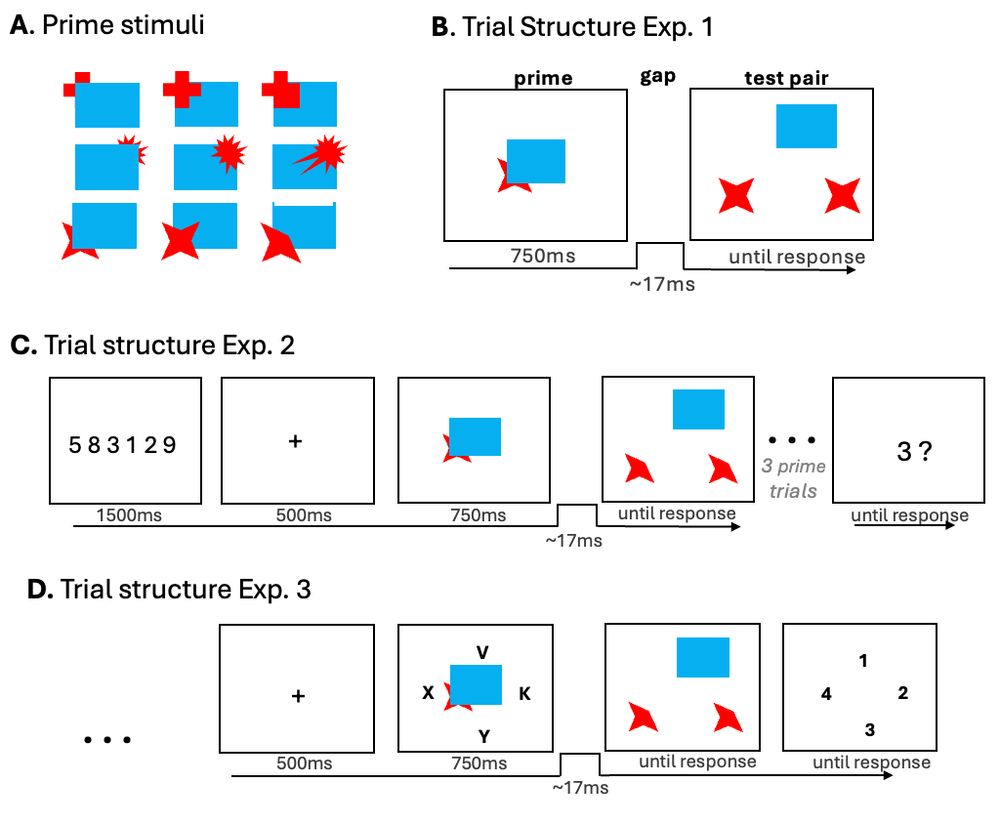
Reposted by Jonathan Phillips
Reposted by Jonathan Phillips


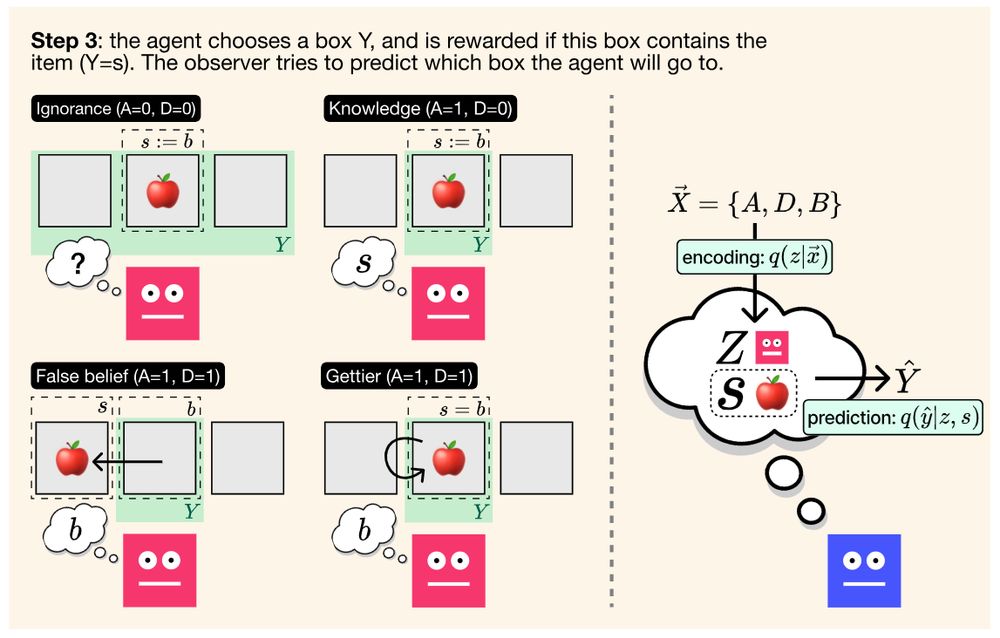

The model can explain many of the successes and failures of mindreading in human adults and children, and non-human primates. 🧵
Reposted by Jonathan Phillips
A graph of articles in the SEP (standord encyclopaedia of philosophy), showing connections; it can help explore the field.
www.visualizingsep.com#/domain/epis...
#Philosophy #philsky #SEP #graph #catalogue
